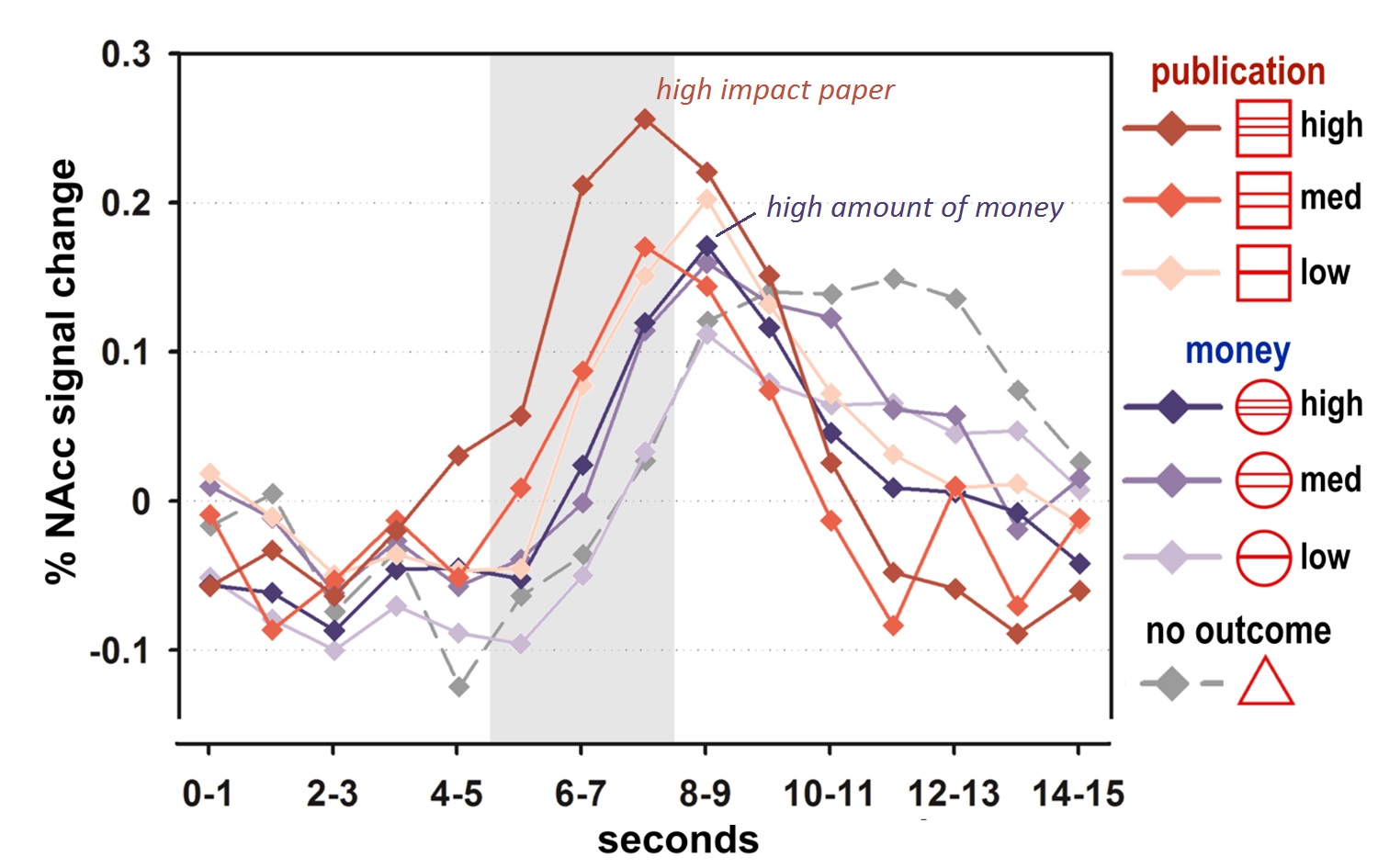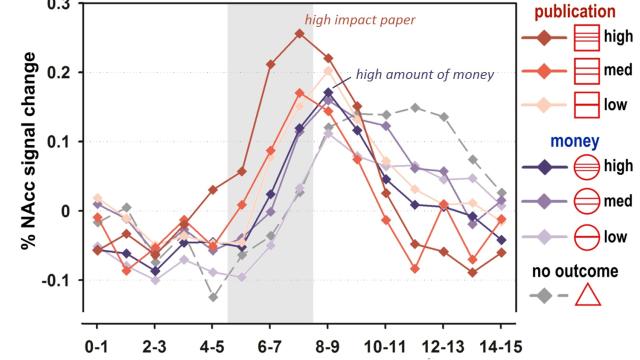A bizarre research study has revealed that neuroscientists are more excited at the prospect of seeing their names in prominent research journals than they are by piles of money.
Given the not-so-glamorous salaries of academic researchers, this probably doesn’t come as much of a surprise. But the clever part of the study is really in exploring how people’s experiences as adults can alter the way our brains function.
Neuroscientist Michel Paulus and his colleagues put other neuroscientists in an fMRI machine to measure activity in a brain region called the nucleus accumbens, often called the brain’s “reward center.” This part of the brain dances with electrical activity when we enjoy a reward, whether that’s a Nobel Prize, an orgasm, or a shot of heroin (yes, the nucleus accumbens is also associated with addiction). Once in the fMRI, subjects were shown pictures of several different objects, including money. They were also shown fake scientific papers, with the subjects’ names on them, published in the prestigious journal Nature Neuroscience.

In the chart above, you can see that activity in the neuroscientists’ nucleus accumbens (NAcc) was highest when they saw their names in Nature. Cash money couldn’t measure up to the cultural capital represented by those articles.
Neuroskeptic sums it up: “So the ‘joke‘ is that neuroscientists’ brains get more excited about publishing in Nature Neuroscience than about stacks of 500 Euro notes.” That’s true. But as I said earlier, this study is also about how our brains’ basic functions change in response to new experiences and social environments. Paulus and his colleagues’ research suggests that our brains adapt to give us the hot reward injection for whatever is most prized among our peers. That’s why a neuroscientist’s brain is primed to respond excitedly to an image that another person’s brain might not respond to at all.
And no, this study wasn’t some kind of viral ad campaign for Nature, whose journal got our neuroscientists so excited. The research was published in PLoS One, Nature’s open-access competitor.
via Neuroskeptic
